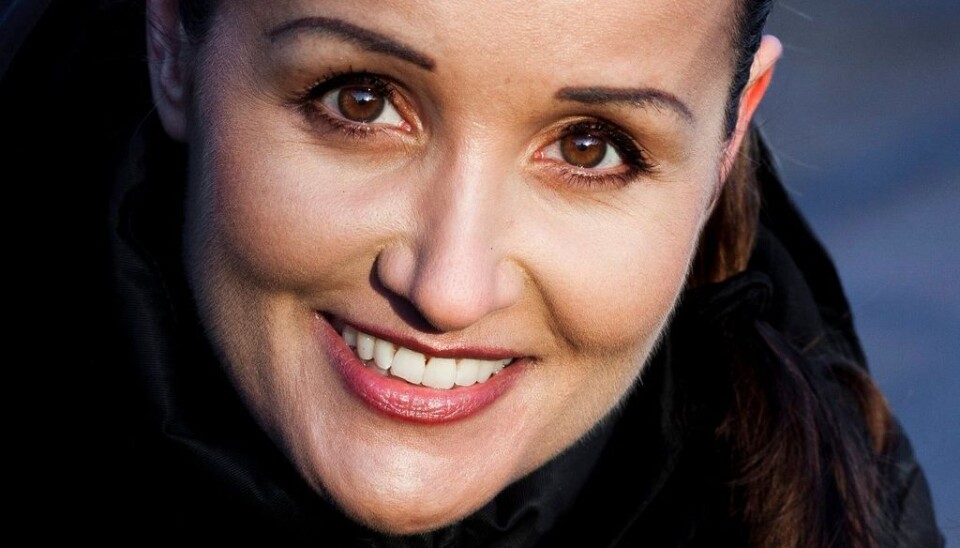An article from The Norwegian National Committees for Research Ethics

Milena Penkowa – from famous to infamous
The story of Milena Penkowa involves large-scale research fraud, lies and embezzlement. However, the story also shows the importance of having adequate systems for revealing research misconduct.
Denne artikkelen er over ti år gammel og kan inneholde utdatert informasjon.
The brain researcher Milena Penkowa was one of Copenhagen University’s major stars. She won awards and was held up as a model for young researchers.
She amassed millions in research funding for the university and had a high public profile.
Despite repeated accusations of research misconduct, she rose through the ranks at Copenhagen University (CU), and in 2009 she was awarded the prestigious Elite Research Prize.
She had a close relationship to the dean at the Faculty of Health and Medical Sciences, who later became rector of CU, as well as to a former minister of science and education. There are many who wonder whether this may have delayed the revelation of her research misconduct.
Forgery of data and documents
The Penkowa case is really a collection of numerous individual cases. They involve manipulation and fabrication of research data, forgery of invoices and papers on Spanish trials with rats, and the use of research funds for private purposes.
She also invented a story of the death of her mother and sister in order to extend the deadline for submission of her PhD thesis.
In 2001, Milena Penkowa submitted her thesis to the Faculty of Health and Medical Sciences. The adjudication committee unanimously recommended rejection of the thesis, because they questioned the suspiciously high number of experiments on rats that she claimed to have undertaken.
Penkowa withdrew her thesis, but the university deemed the case to be so serious as to warrant submission to the national Danish Committees on Scientific Dishonesty (DCSD).
Experts exonerate Penkowa
In 2003, the then dean of the Faculty of Health and Medical Sciences requests a Norwegian and a Swedish expert to reassess Penkowa’s thesis. They are also to assess whether there are any grounds to submit the case to the DCSD.
The two experts conclude that there are no grounds for criticizing Penkowa’s work, and instead they are highly critical of the adjudication committee for their failure to understand her research.
In 2004 she resubmits the thesis, but this time without the article describing the numerous experiments on rats. She explains her late submission by stating that her mother and sister have perished in a car accident. The following year, a unanimous adjudication committee recommends that Penkowa’s thesis should be accepted.
Penkowa then receives a three-year grant of DKK 5.6 million from the private research fund IMK Almene Fond.
She successfully defends her thesis and is awarded her PhD. Her mother and sister are alive and well and are both present at the doctoral dinner.
Wins a prize, but suspicion grows
In 2007, the faculty management opens a case against Penkowa and submits it to the rector. An member of the academic staff has raised the alert that several of her research results are not reproducible. The case is forwarded to the university’s Practice Committee, which deals with issues pertaining to good academic practice.
The Practice Committee concludes that there are no grounds for criticizing Penkowa’s analyses, although there are some grounds for criticizing her supervision of students.
In 2008, Penkowa nominates herself to the Ministry of Higher Education and Science’s Elite Research Prize, on the agreement of the then head of the Department of Neuroscience and Pharmacology. And she wins the prize. HRH Crown Princess Mary hands her the prize of DKK 1.1 million.
In 2009, the department in which Penkowa is employed as a lecturer offers her a one-year position as substitute professor.
The following year Penkowa is suspected of research misconduct. Two students have obtained the opposite result when repeating the brain researcher’s experiments. The issue is reported to the management of Copenhagen University. The rector and a researcher submit two complaints on Penkowa to the Danish Committees on Scientific Dishonesty, DCSD.
Is fired and put under police investigation
In December 2010, Penkowa is fired from CU. It emerges that she has spent several million of her grant from the research fund IMK for private purposes. She is also reported to have fabricated international praise for her own research in order to ensure these research funds for herself.
The university then reports Penkowa for aggravated document forgery and possible fraud related to a series of animal experiments in Spain in 2003. The Weekendavisen weekly has revealed that Penkowa has produced forgeries of papers from a Spanish firm to prove that she has performed the alleged experiments on rats.
The police search Penkowa’s laboratory, and she is charged with fraud and document forgery.
The public prosecutor determines that the rector of CU, Ralf Hemmingsen, failed to undertake a sufficient check of Penkowa’s animal experiments, but the board of CU decides that this should entail no consequences for him. CU is also criticised for allowing Penkowa to nominate herself as a candidate for the Elite Research Prize in 2008.
Charlotte Sahl-Madsen, Minister of Higher Education and Science, strips her of the prize in 2011, upon the recommendation of CU.
Misconduct in a series of articles
Upon the recommendation of the Danish Council for Independent Research in 2011, the university charges an international panel of experts with undertaking a review of Pankowa’s academic production.
The following year, in the first two of a number of cases, the DCSD determines that Penkowa is guilty of research misconduct and responsible for serious violations of good academic practice.
According to the committee, she has wilfully provided misleading and false information and fabricated data.
The international panel finds clear indications of misconduct in another fifteen of Penkowa’s scientific articles from the period 2000–2005. CU submits this in a complaint to the DCSD and considers the possibility of depriving Penkowa of her PhD.
In 2013, the DCSD declares that Professor Bente Klarlund Pedersen, who is co-author of several of Penkowa’s articles, is guilty of scientific misconduct for reasons including that she has failed to detect and react to Penkowa’s manipulation of images in one specific article.
A need for appropriate regulations
Tore Lunde is head of the Norwegian National Commission for the Investigation of Research Misconduct.
He believes that the Penkowa case is a reminder of the need for rules and principles of good academic practice.
“I fear that this case might leave the impression that investigations of scientific misconduct are not handled as effectively as they could be. The case shows also that we need good regulations and procedures to ensure thorough and effective processing and investigation of cases when allegations of scientific misconduct are made.”
He finds that the timeline in this case gives cause for concern.
“Concerns for the reputation and trust in the research community and concerns for the researchers and research institutions involved underscore the need for close follow-up of allegations of misconduct from the very start.”
Another aspect of this case relates to the role that the institutions play or ought to play in such cases, including problems of partiality and the like that may often occur locally.”
A wake-up call
Could we see a similar case in Norway today?
“I choose to believe that the closer attention devoted to research ethics at various levels as well as training in principles of scientific honesty help reduce the risk of a similar case occurring in Norway today.”
He nevertheless believes that it may be difficult to establish completely watertight systems to prevent violations such as document forgery.
“We should therefore take care not to sit back and believe that current regulations and systems for handling allegations of scientific misconduct will provide a watertight guarantee against such gross violations in the future. It is to be hoped, however, that the existing regulations will capture any such occurrences at an earlier stage than in the Penkowa case.”
Lunde thinks that the case should serve as a wake-up call for all research institutions that base their activities on cooperation, for example with regard to the role of co-authors in the publication of research results.
“The case also highlights the importance of ensuring opportunities for verifying published research results.”
Sources:
This article is based on reports in the Weekendavisen weekly and the Politiken, Berlingske Tidende and Berlingske dailies, Copenhagen University publications, the Universitetsavisa student newspaper and the Dagbladet daily.
------------
Read the Norwegian version of this article at forskning.no































